Critical Survival Skills You Should Practice at Home
Gathering a stockpile of food, water, and supplies in your home is certainly a great place to start as far as preparing for an emergency, but what happens if all your supplies, along with your “bug-in” plans, go up in smoke? If you’re forced into a situation where you have to abandon the protection and comfort of your home in a matter of minutes, will you know what to do in order to meet your family’s most basic needs? My guess is some will and some people probably not. Keep these critical survival skills you should practice at home in your mind to teach your family.
You’re going to need to learn certain survival skills so that you’re prepared for any type of emergency. Fortunately, you don’t necessarily have to go on a camping trip to improve on these skills. These are critical survival skills that you should practice at home so that you have mastered them before you need them.
Related Topic: How to Prepare for Isolation
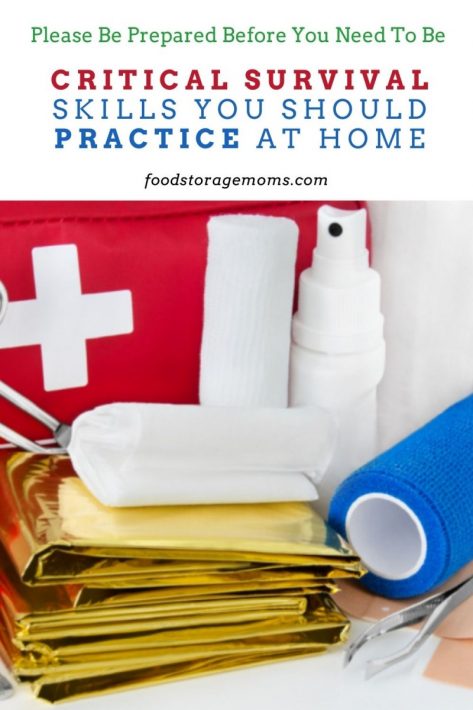
Finding and Purifying Water
Following a disaster, it will certainly be nice to have that emergency supply of drinking water to hold you over, but what happens once that supply runs dry? Water is one of your most basic needs, and your body will only survive a few days without it. You’ll have to find another water source nearby that you can tap into.
For that, you will need a portable water filter (LifeStraw) for each member of your family. It’s one of the best out there and can be used on almost any water source as it filters out the parasites and bacteria that you don’t want to drink. If you can’t think of any water sources that are close to you, grab a map and get better acquainted with your options before you’re faced with a water dilemma. My YouTube using a WAPI (When the green wax melts and goes to the bottom of the tube the water, the water is safe to drink (after cooling down, of course). The nice thing about a WAPI, is they are reusable!!
Foraging and Hunting Skills
If your family is at the mercy of nature, you’re going to need to know how to forage and hunt for your food. Foraging is more than just finding berries on a tree or picking up mushrooms that are growing on the ground and plopping them into your mouth. You need to know which plants, berries, roots, herbs, and flowers are edible in your area.
While you may not find all of these in your backyard, you can do your research online to determine which ones are indeed poisonous, as well as whether they can be eaten raw, or require cooking. Also, research what should be growing in your particular area.
Hunting may be another skill that you can’t necessarily learn in your backyard, but it might prove critical to have. If you haven’t already, I’d encourage you to go on a hunting trip with an experienced hunter so that you can have that experience to draw on.
Hopefully, you don’t have a weak stomach because you’ll have to learn how to prepare and store your own game meat. After an emergency, you may not have the convenience of a butcher to process your meat for you.
Preserving Food
Maybe you’re still able to remain in your home following an emergency, but it’s lasting for much longer than expected? You’ll need to learn how to preserve food by water bath canning, pressure canning, or dehydrating it. In case you missed this post, How To Make Hardtack
Not only will it help your family survive, but it will also remind you of the amazing things that your grandmother used to make that you enjoyed as a kid. In case you missed this post, Home Canning-Important Do’s and Don’ts
First Aid
How brushed up are you on your first-aid skills? Besides putting a band-aid on a boo-boo, do you know how to help someone who’s not breathing? You can take a CPR course (fees may apply) that will teach you this vital skill, or you could watch videos online to strengthen your medical skills.
Knowing how to make a splint, stop intense bleeding, or create a sling, could provide the care that your loved one desperately needs following a disaster. In case you missed this post, First Aid Kits-What You Need To Survive
Building a Shelter
Finding shelter from the harsh elements is one of your most basic needs and shouldn’t be taken lightly. You don’t want your family suffering from hyperthermia due to the cold or wet conditions.
In many cases, this may require you to build your own shelter, so you’ll need to know how to do it.
Fire Starters
If you’re dealing with a long term disaster, eventually your supply of fuel for starting a fire will run out. Starting a fire for cooking or warmth can be made much more difficult if it’s a cold, wet, or windy day. In case you missed this post, How To Be Prepared With InstaFire Emergency Fuel
Building a Fire
Would you know how to stay warm and cook your meals if your life ever depended upon it? If not, then it’s time that you learn how to properly build a fire. In the present, this also gives you an excuse to catch something on fire or roast some marshmallows over a roaring campfire. You see, learning survival skills can be fun and delicious. I love using a Quickstart Fire Charcoal Starter
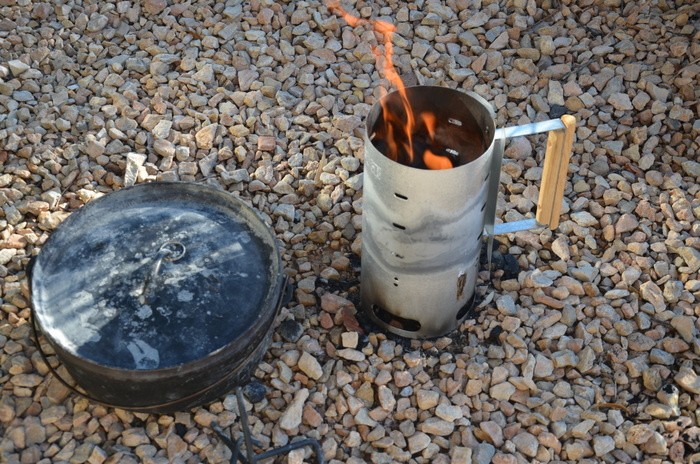
Knot Tying
Knot tying may not seem like a skill that could greatly improve your chances of survival, but trust me, it could make all the difference. Especially when you need to make a proper shelter, build a trap, perform first aid, or create a harness that can support your weight as you climb out of a dangerous location. These are 20 essential knots that you need to learn how to make, that could one day save your life. This is for sure one of those critical survival skills.
Discover Natural Remedies
The great outdoors is full of natural remedies that can be used to treat a number of different sicknesses. So, on top of stockpiling OTC medicines, do some research and discover these natural healers and their many uses. These are some of the top herbs that you should consider growing, or also ones that you can hunt for if you ever find yourself in the middle of the wilderness. In case you missed this post, Natural Remedies That Really Work
Critical Survival Skills You Should Practice at Home
Final Word
For those of you who have already established a stockpile of emergency supplies for any emergency, kudos to you! However, surviving a long-term disaster may involve a little more than that. By spending time going over these critical survival skills in the privacy of your own home, you’ll have not only the skills but the knowledge of nature’s resources that you can use for your advantage. May God Bless this world, Linda.
25 Ways to Use Duct Tape for Survival
Copyright Images: First Aid Kit AdobeStock_208774994 by PhotoSG

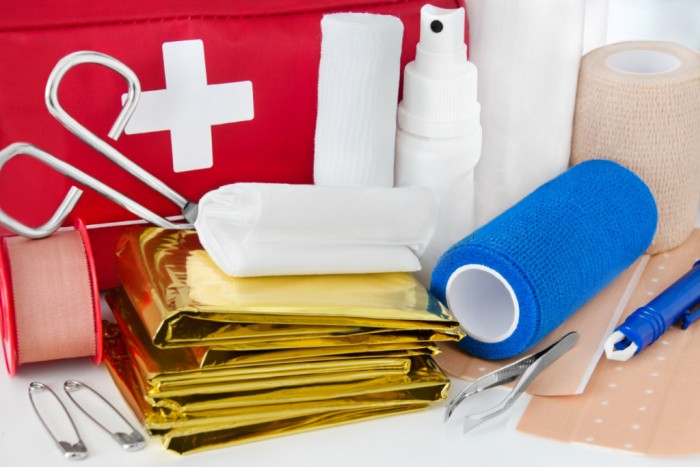

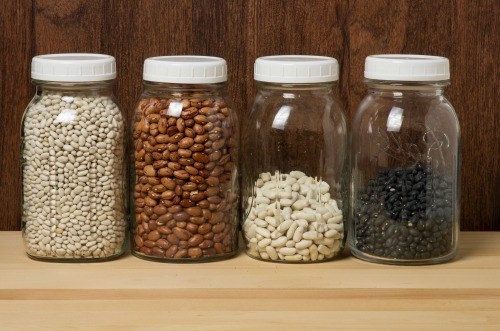

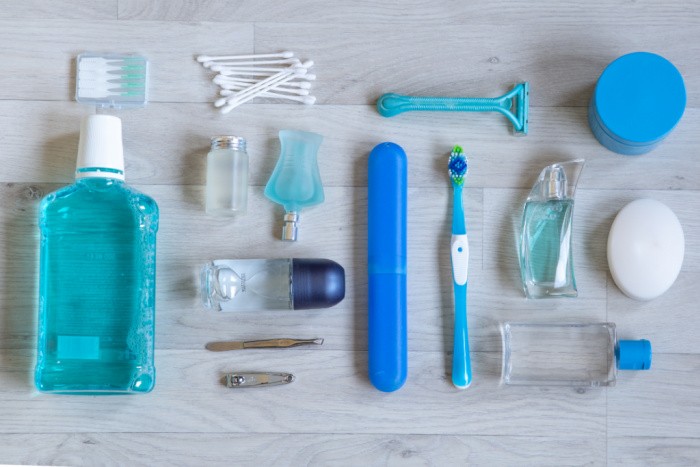
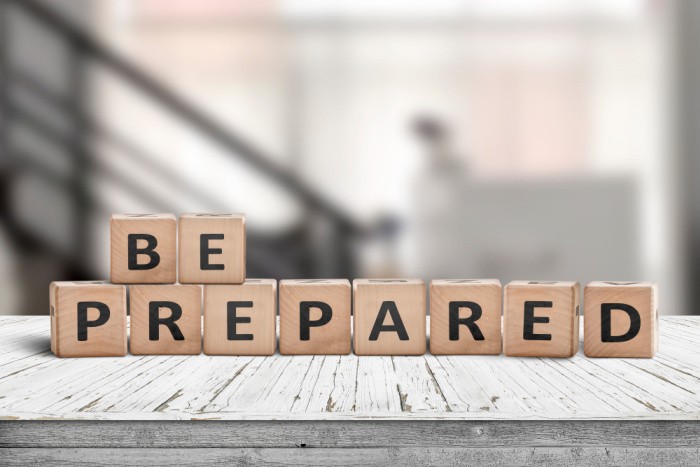
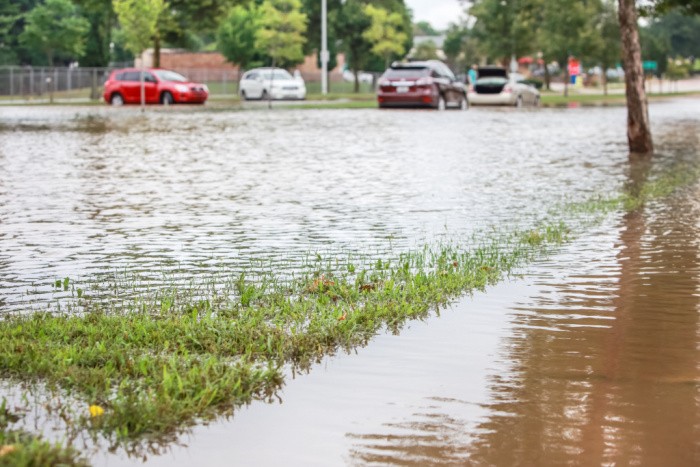
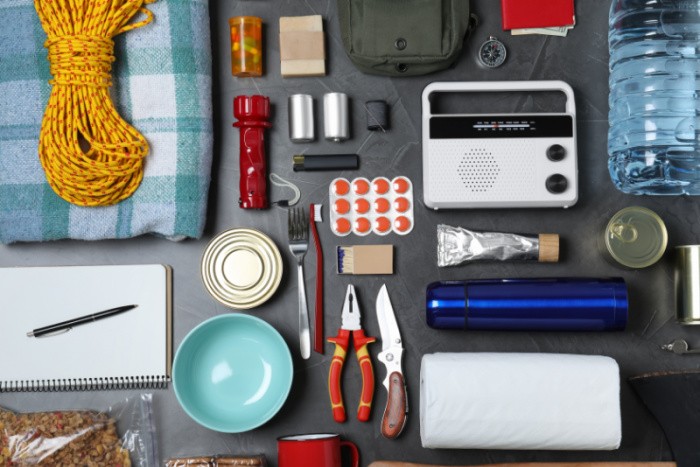


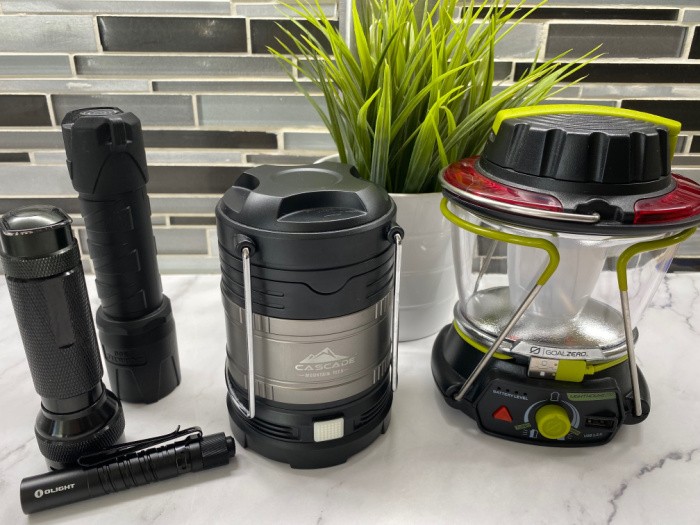

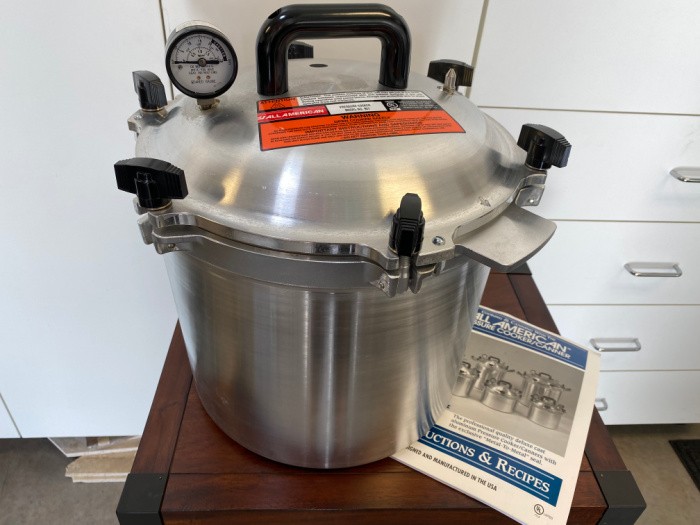



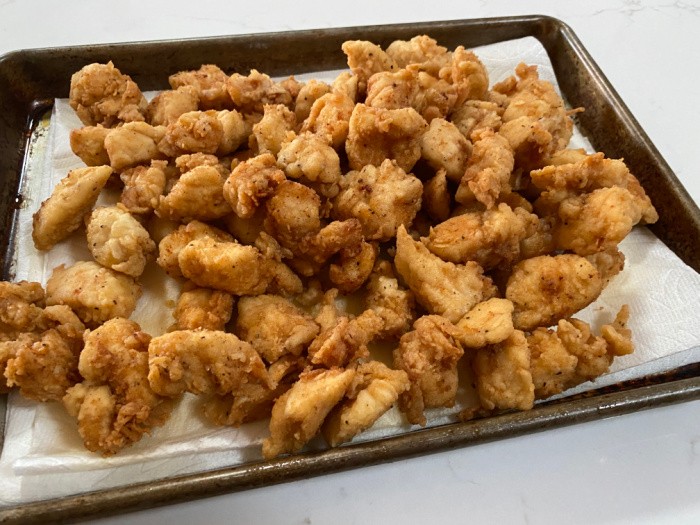
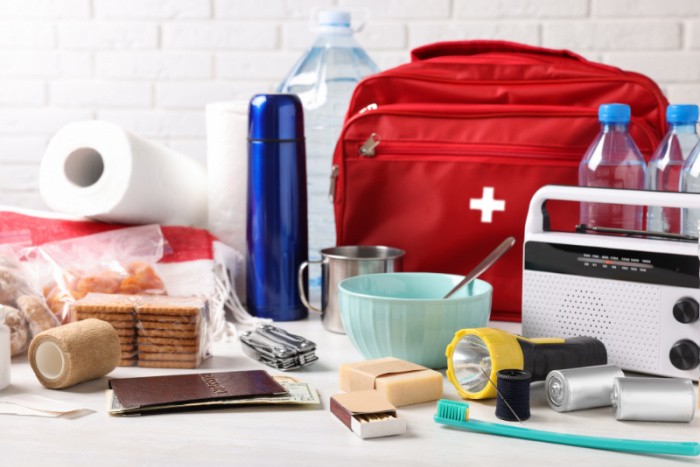
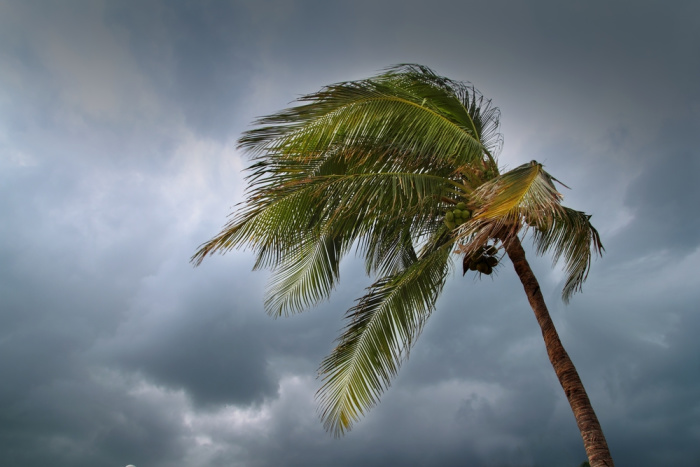
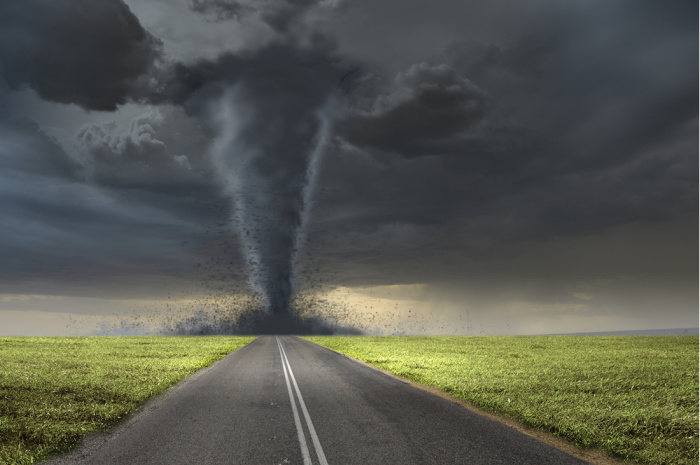


It’s interesting to note that all of the things you covered can be easily be done with minimal gear and supplies and easily done almost anywhere except maybe for the fire starting for those who live in an apartment or condo and don’t have an easily accessible outdoor area, but most everything else can be done indoors.
Shooting firearms or arrows, making natural shelters, burying a cache tube and such will require a yard, going to a range or campsite, but that can be a planned out educational day. But one can learn how to operate a crossbow, clean a pistol, make those cool knots, purify water, setup a small tent in the living room and certainly practice their food preparation and storage skills. Maybe make some fresh bread, beef jerky or hard tack, sew a button or mend a tear or even learn to sharpen a knife with a stone.
I am not suggesting one become an armchair prepper, but you can and should put in some learning time, reading books and watching videos and then putting that knowledge to use when you can. Just a weekend trying something is better than nothing and if you try different things you’ll find the things you’re really good at and then you can work on the weak areas or spread the tasks among friends and family as each person develops their knowledge and skills.
I’m trying to pickup things that interest me which would be useful prepper skills otherwise I would lack proficiency. None of us can really do it all, but we can try and then it seems to be a little easier and seems less daunting.
Hi Frank, I totally agree with you. We can’t learn everything all at once. But if we want to learn a new skill, research all you can even if you are sitting on the couch or armchair! Like me! LOL! Last year I learned to make hardtack, I thought, man, this is so easy! But I wanted to teach others how to make it as well. I need to go add that link to this post while I’m thinking about it. You know you really nailed when you said most of these items can be learned in our homes now before we need to use them outside if need be. Just start so it doesn’t seem so overwhelming. I hope you’re enjoying your quiet time, my friend! Linda
Tracking. We just had a good snow and the following mud will help too. Critter type, direction of travel and natural chokepoints where traps could be placed just by walking around the yard.
There is plenty that can be done in the shooting arena from dry fires, mag/speed loaders/speed strips reloads, clearing jams, to using laser devices, room clearing with and without night vision in day and night. Airsoft is a great tool.
Ranging is easy to practice form home to. How far is that water tower or building then use a range finder to see or even google earth which has a distance indicator on it.
Hi Matt, oh my gosh, Mark has a range finder, great tip! I need to look at the Airsoft deals. Great comment! Linda
I am pretty fortunate in that I have all of these skills to some degree: some more than others! I think it is also important to know how to make cordage from things you can find out in the woods. My father made sure we all knew how to, what plants to search for and how to process the bark or inner bark to make a quick “rope” in the field. I have made cordage using maple (wild shrubs/small trees) and cedar. Dad also taught all of us kids how to make rope. Most of the time we just used bailing twine and made stronger rope from the twine we cut from the bails. My husband taught me how to take wire and make a very much stouter wire just by twisting wire around – sometimes using one length of wire and bending it in half and twisting but sometimes all he had was very thin wire and he needed something stronger so took 3-4 lengths and twisted together. It is really easy to do if you have 2 people and a drill but I learned by attaching one end of the wires to a nail in a board (standing on the board) and using a pair of pliers.
A book I would recommend: Native American Crafts and Skills – David Montgomery available on Amazon.
Hi Leanne, you learned some awesome skills growing up and during your lifetime. I need to look at that book, thanks for the tip on that one! Linda
As silly as it sounds, Pinterest has alot of survival skills pins to it. They have hot links to sites that I have found very useful. One of my boards is all about survival and I periodically review it. Alot of it is very practical, with items easily found around the house. I especially liked using pool noodles to line a potty bucket! Crazy things like that, they’re great!
Hi Robbie, I have seen that noodle on the potty bucket! I love it! Pinterest has great ideas! Linda